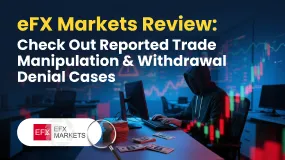Abstract:The collapse of a major cryptocurrency investment program in Australia, affecting over 450 investors and involving approximately US$41 million, has led to swift regulatory action by the Australian Securities and Investments Commission (ASIC), including the filing of a lawsuit against three crypto mining companies and their directors.

The collapse of a significant cryptocurrency investment program in Australia has sent shockwaves through the financial landscape, involving approximately US$41 million and impacting over 450 investors. This development prompted the country's financial regulatory body, the Australian Securities and Investments Commission (ASIC), to take swift action by filing a lawsuit against three crypto mining companies collectively known as NGS Companies, along with their sole directors.
In response to ASIC's legal action, a court order was obtained to seize digital assets held by NGS Companies. Furthermore, one of the directors has been prohibited from leaving the country, indicating the severity of the situation and the regulatory scrutiny it has attracted.
NGS Companies had enticed investors with investment plans centred around their cryptocurrency mining activities. The allure of guaranteed yearly returns, advertised on their website to be as high as 16%, with a minimum of 6%, attracted a significant number of investors seeking profitable opportunities in the crypto space.

The collapse of this cryptocurrency investment scheme has raised concerns within the regulatory sphere, particularly regarding the potential loss of invested funds. Of notable concern is the revelation that none of the three companies possessed the necessary licenses to operate legally within Australia. ASIC has taken a firm stance, holding NGS Companies accountable for unlawfully marketing crypto mining investment products and exposing investors to financial risk.
Joe Longo, the head of ASIC, issued a cautionary statement to Australians managing their retirement savings, urging them to exercise caution when considering investments in crypto-related products. Longo emphasized the importance of thoroughly assessing risks before committing funds, especially when utilizing self-managed superannuation funds for such investments.
Furthermore, Longo underscored that this case serves as a stark warning to the broader crypto industry. ASIC remains committed to vigilantly monitoring products and enforcing regulatory compliance to safeguard consumers and uphold market integrity.
This recent incident follows a pattern of similar actions taken by ASIC earlier this year. The regulator's proactive approach has seen the dismantling of other high-profit cryptocurrency schemes and the penalization of individuals involved in dishonest practices within the crypto fund sector.











